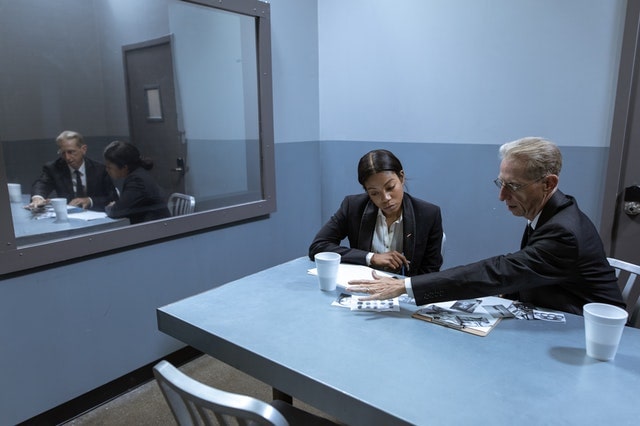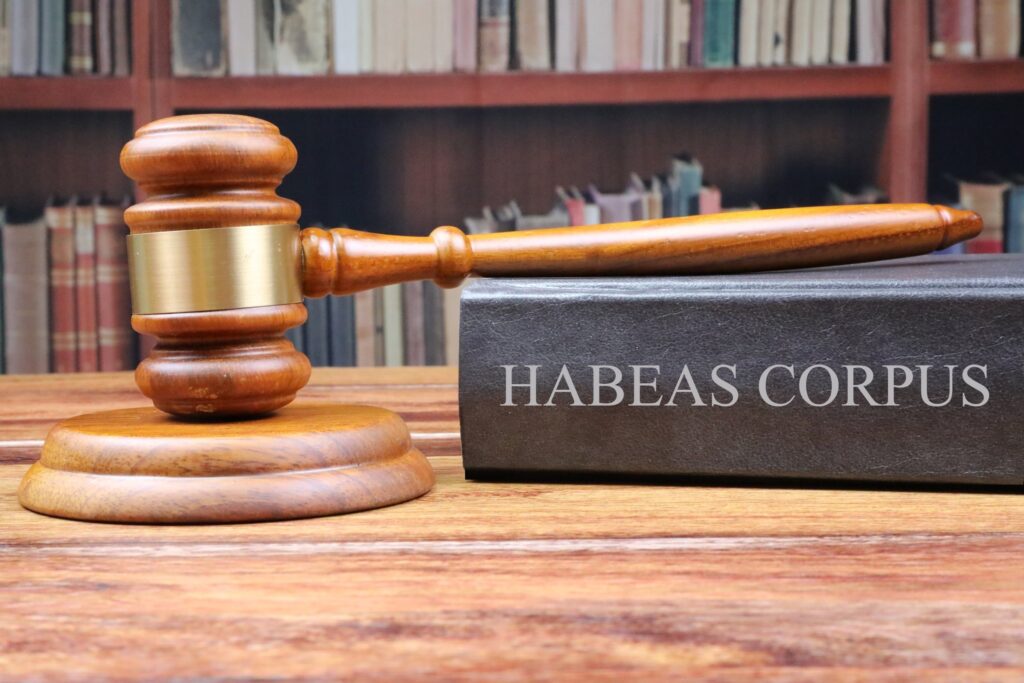Why You Required a Lawyer for Your Habeas Corpus Case
Why You Required a Lawyer for Your Habeas Corpus Case
Blog Article
Comprehending the Function of a Post-Conviction Legal Representative in Looking For Justice After a Criminal Conviction
In the complex landscape of post-conviction legal proceedings, the function of a post-conviction lawyer is pivotal in navigating the path to justice after a criminal sentence. Beyond the boundaries of a trial, these lawful specialists participate in a multifaceted approach targeted at revealing new proof, challenging lawful errors, and supporting for their clients' rights. The ins and outs of post-conviction work require a mix of lawful acumen, investigatory abilities, and strategic believing to unwind the intricacies of a situation and pursue opportunities that may have been forgotten or underexplored. As the pursuit of justice prolongs beyond the confines of initial procedures, the function of a post-conviction attorney arises as a sign of wish for those looking for to fix injustices and reclaim their civil liberties within the legal system.
Post-Conviction Legal representative's Investigative Job
Post-conviction attorneys participate in careful investigatory job to uncover brand-new evidence, step-by-step errors, or misbehavior that might possibly result in reversing a sentence. This investigative stage is important in the post-conviction process as it intends to determine any type of forgotten details or legal mistakes that might have affected the result of the first trial. Post-conviction attorneys dive into case data, witness statements, and legal documentation with a fine-tooth comb, looking for any discrepancies or irregularities that could be premises for allure.
Via complete investigation, post-conviction legal representatives intend to shed light on prospective injustices that might have occurred throughout the original trial. By inspecting every aspect of the legal process, post-conviction attorneys work relentlessly to uncover any aspects that may have affected the decision.
Crafting Appeals and Petitions
In the quest of justice after a conviction, skilled attorneys carefully craft charms and petitions to present compelling arguments for the reconsideration of lawful choices. Crafting allures and applications calls for a deep understanding of the lawful system, interest to information, and calculated thinking. Post-conviction lawyers examine test records, determine prospective errors or offenses of civil liberties, and develop legal debates to challenge the sentence or sentence.
When crafting an appeal, attorneys concentrate on highlighting lawful errors that may have impacted the outcome of the situation. They investigate case regulation, statutes, and lawful precedents to support their disagreements. Applications, on the other hand, might involve presenting brand-new proof that was not readily available during the test or showing changes in the law that warrant an evaluation of the conviction.
Additionally, post-conviction attorneys have to stick to strict procedural guidelines and target dates when filing allures and requests. They have to offer their disagreements clearly and persuasively to convince the court to grant alleviation to their customers. Through careful crafting of charms main federal habeas corpus attorneys and applications, post-conviction lawyers make every effort to secure justice for individuals who have actually been wrongfully founded guilty or unjustly punished.

Pursuing Post-Conviction Alleviation
Post-conviction relief encompasses an array of legal systems developed to challenge the legitimacy of a conviction or sentence. Post-conviction legal representatives play an important duty in browsing these complex procedures, guaranteeing that all legal alternatives are explored to fix injustices that may have occurred throughout the trial or sentencing phase.
One usual type of post-conviction relief is submitting a request for post-conviction alleviation, normally based on claims of inadequate help of advice, prosecutorial misbehavior, recently found proof, or constitutional offenses. Experienced post-conviction legal representatives possess the skills and expertise essential to determine viable lawful insurance claims, perform investigations, and present engaging disagreements to secure alleviation for their customers.
Making Use Of Forensic Proof
When testing a conviction or sentence, the calculated usage of forensic proof can be a powerful device in post-conviction legal procedures. Forensic proof encompasses a variety of clinical strategies made use of to check out criminal offenses and develop truths in court. Post-conviction legal representatives can take advantage of forensic proof to challenge the credibility of sentences by offering brand-new clinical findings that were not readily available throughout the original trial.

Taking Part In Sentence Alterations
Post-conviction attorneys may check out the possibility of sentence adjustments as a lawful opportunity to attend to out of proportion or unfair sentences bied far in criminal cases. Sentence adjustments entail seeking adjustments to the terms of a defendant's sentence after a conviction has taken area. These adjustments can include lowering the size of a sentence, changing the kind of punishment imposed, or exploring alternate sentencing options.
Post-conviction lawyers can go after sentence adjustments with numerous legal systems, such as submitting movements for sentence decrease, appealing for compassionate launch, or negotiating plea offers for reduced sentences. They should thoroughly review the scenarios of the instance, assess the lawful premises for seeking a modification, and present compelling disagreements to the court supporting the demand for a modified sentence.
Taking part in sentence modifications requires a detailed understanding of criminal law, sentencing guidelines, and the certain procedures associated with seeking post-conviction alleviation. Post-conviction legal representatives play an essential function in advocating for reasonable and just end results by tough sentences that are unduly rough or do not straighten with the concepts of justice.
Conclusion
In verdict, the role of a post-conviction attorney is important in seeking justice after a criminal conviction. Via investigative work, crafting appeals and applications, going after post-conviction alleviation, making use of forensic proof, and participating in sentence modifications, these lawful experts play an essential function in supporting for their customers and guaranteeing that their rights are maintained within the criminal justice system. Their commitment and know-how are essential in browsing the complexities of post-conviction process and achieving a reasonable end result for individuals encountering criminal convictions.
Report this page